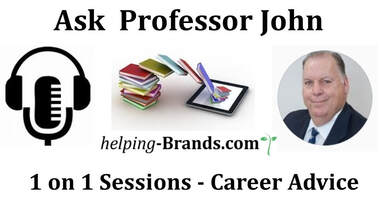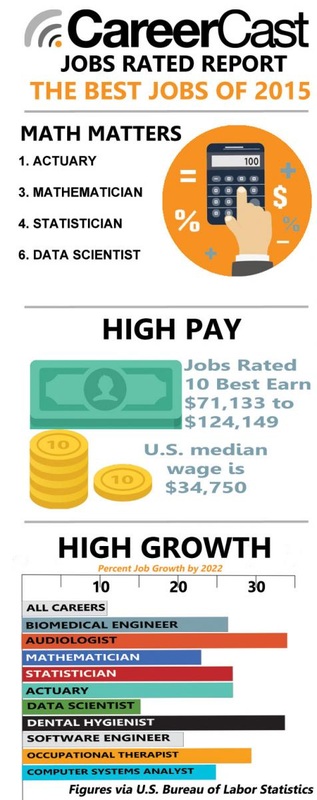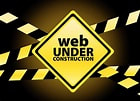Career Transition
|
When you are out of work or stuck at a level in your organization it is a great time to re-evaluate what it is you want to do and what you are good at. As many are stuck in jobs and careers they are not happy with, this current career transition can play a role to get you to where you want to.
|
Book 1 on 1 session with me
Articles of interest
Census report: US energy boom creating millions of jobs by Mary Snow
As Mary Snow reports, jobs in fields associated with America's energy boom are skyrocketing
Topics: Census Bureau Oil Energy Fracking Economy
As Mary Snow reports, jobs in fields associated with America's energy boom are skyrocketing
Topics: Census Bureau Oil Energy Fracking Economy
This Epic Chart Shows The Average Wage For Almost Every Job In America
About O*NET The O*NET program is the nation's primary source of occupational information. Central to the project is the O*NET database, containing information on hundreds of standardized and occupation-specific descriptors. The database, which is available to the public at no cost, is continually updated by surveying a broad range of workers from each occupation. Information from this database forms the heart of O*NET OnLine, an interactive application for exploring and searching occupations. The database also provides the basis for our Career Exploration Tools, a set of valuable assessment instruments for workers and students looking to find or change careers.
The Occupational Information Network (O*NET) is being developed under the sponsorship of the US Department of Labor/Employment and Training Administration (USDOL/ETA) through a grant to the North Carolina Department of Commerce.
Learn more about the O*NET project partners.
The Occupational Information Network (O*NET) is being developed under the sponsorship of the US Department of Labor/Employment and Training Administration (USDOL/ETA) through a grant to the North Carolina Department of Commerce.
Learn more about the O*NET project partners.
Checklist of Transferable Skills
Transferable skills are skills that you can take with you from one situation to another, from onejob to another. The skills below are important to employers. Which ones do you have?
Transferable skills are skills that you can take with you from one situation to another, from onejob to another. The skills below are important to employers. Which ones do you have?
- Communicate: Speak and/or write well and get your ideas across to other easily.
- Interpret: Look at things and make sense of them, figure out what makes things work,why there is a problem, etc.
- Analyze: Break a problem down to see what is really going on.
- Creativity: Use your imagination to come up with new ideas or to solve problems.
- Order Goods/Supplies: Keep track of items and how to order them.
- Decision Making: Make good judgements about what to do in a difficult situation, even when the supervisor is not present.
- Adapt to Situations: Learn a new task and/or work in a different area with different co- workers.
- Explain: Tell others why you do certain things they way you do or why you think the way you do.
- Think Ahead: Plan your day and keep problems/accidents from happening.
- Calculate Numbers: Use a calculator, cash register or computer to answer numerical questions.
- Operate Equipment: Turn equipment on and off as well as how to use it safely and wisely. (If you don't know how to operate certain things, you always ask for help.)
- Record Data: Write thorough and accurate notes/numbers.
- Set Goals: Set goals for yourself to achieve and plan ways to achieve them.
- Learn Quickly: Do new things and carry out new responsibilities easily by watching other or by following instructions.
- Confident: Believe in and feel good about yourself.
- Pleasant: Nice person for others to talk to and be with.
- Energetic: Lots of energy to use at work and at play.
- Helpful: Enjoy helping people solve their problems.
- Trustworthy: Can be trusted to get the job done, to look after things or keep secrets that are very important to other people.
- Efficient: Perform tasks in the fastest and simplest ways that they can be done.
- Organize: Arrange people/plan events/put things in order so that they run smoothly.
- Delegate: Assign tasks to others to complete.
- Assemble Products: Put things together with your hands.
- Take Instructions: Follow instructions well, ask questions when you do not fully understand instructions.
- Motivate Others: Help keep others' spirits up and encourage them to do their best.
- Service Customers: Be friendly, patient and polite with customers and try your best to service their needs/wants.
- Dependable: Can be counted on to do what you said you would do (i.e. show up for work on time, do your job duties well, etc).
- Flexible: Can carry out many different responsibilities, sometimes with very little advanced notice.
- Self-assured: Feel very confident and positive about yourself and your abilities.
- Supervise: Watch others to make sure that everything is ok and/or that they are doing their jobs well.
- Time Management: Plan your time so that you don't forget to do things, you're almost always/always on time, and you know how to prioritize and give yourself enough time to do the things that you need to do.M
- Trouble-shoot: Figure out what the problem is, why there is a problem, or prevent a problem before it happens.
- Handle Complaints: Deal effectively with complaints made by customers or constructive criticism from your employer.
- Listen: Listen/pay attention to what others are saying, without daydreaming or forming judgement about them.
- Considerate: Always think about how others may feel about things, especially before you say or do things that my affect them.
- Punctual: Always on time for things.
- Loyal: Committed and devoted to things/people that mean a lot to you (i.e. your best friend, your job/supervisor).
- Precise: Make sure that things are done accurately, correctly and exactly.
- Resourceful: Thing of new, creative and different ways to do things when there are no obvious solutions available.
|
The CareerBuilder Marketing Team
Full Report - Candidate Behavior: http://cb.com/SeekerBehavior2013 Full Report - Recruiter Behavior: http://cb.com/RecruiterBehavior2013 GRAPHICS: • Infographic: http://cb.com/NewJobHunt2013 • Mini-Graphics: http://cb.com/1f6qYiA SECTOR REPORTS • Banking/Finance Sector Report: http://cb.com/1fjjb11 • Education Sector Report: http://cb.com/18Pvihe • Energy Sector Report: http://cb.com/1e95tKT • Entertainment/Recreation Sector Report: http://cb.com/1fjjoRJ • Health Care Sector Report: http://cb.com/18Pvq03 • High Tech/Bioscience Sector Report: http://cb.com/18PvCwl • Manufacturing Sector Report: http://cb.com/1e953UZ • Professional Services Sector Report: http://cb.com/1g083aF • Retail Sector Report: http://cb.com/1g089yN • Transportation Sector Report: http://cb.com/1g08dyB • Staffing Sector Report: http://cb.com/StaffingSectorReport • General Sector Report: http://cb.com/GeneralReport |
|
Quintessential Careers: I am a Career-Changer
Share on facebook Share on twitter Share on email Share on print More Sharing Services 162 This page is your key source for all things career-change related. You'll find some great free career-change tools and resources. Changing careers can be traumatic, especially if you have been in your current career for a long time, but you do not have to go through the process alone or uninformed. Quintessential Careers is here to help empower you to find your career passion, develop the best strategy for making the transition from your current career to your next, and accomplish your career change. We have the tools, resources, and methods to help you achieve your career vision. Use this page as your jumping-off point for finding everything you need to achieve your career change. Unsure whether you are tired of your job more than tired of your career? Take our quiz: Time to Change Jobs... or Careers? A Quintessential Careers Quiz. Career-Changer Resources:
|













